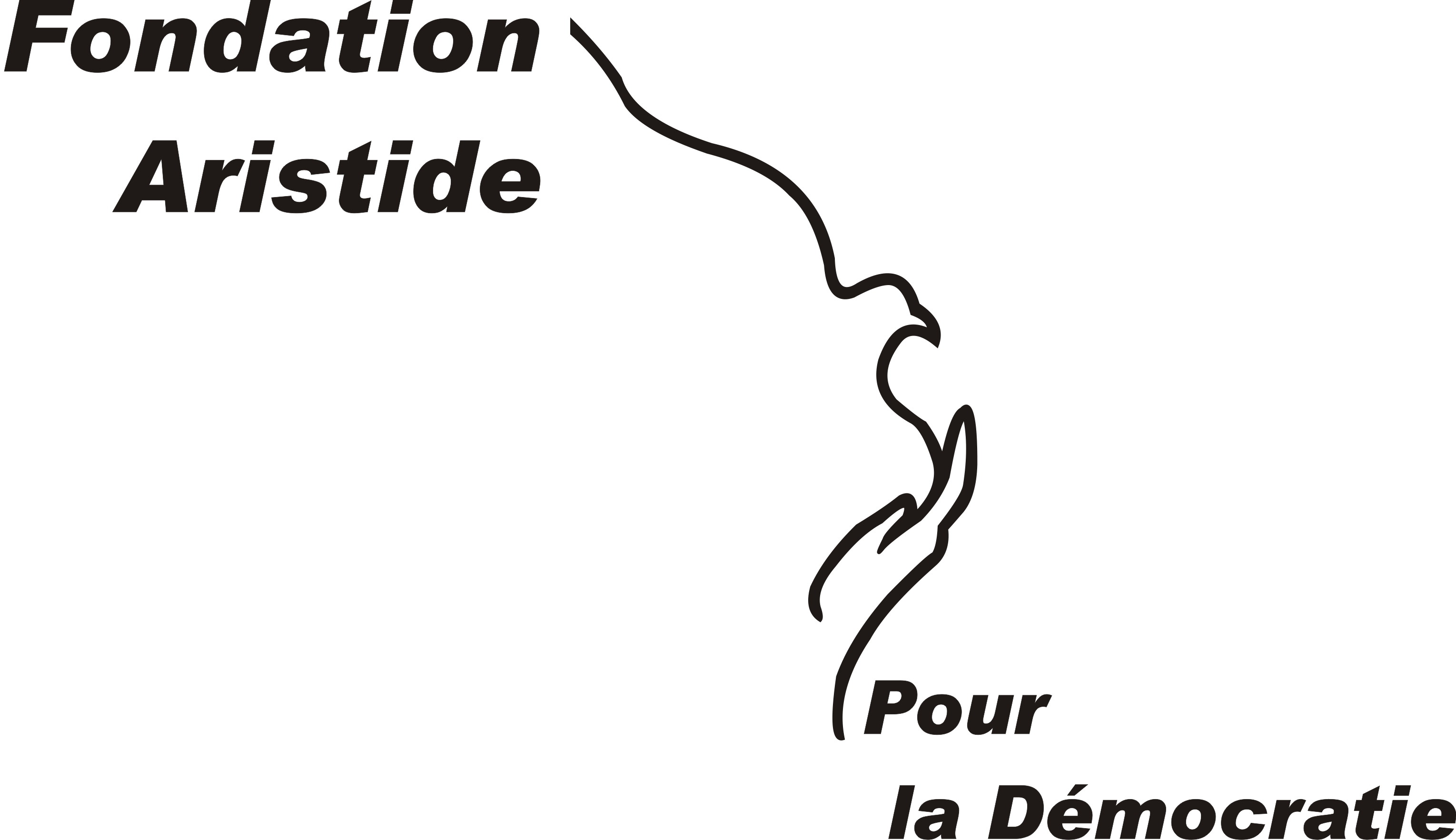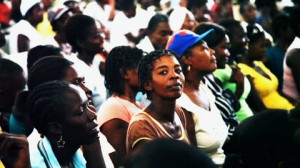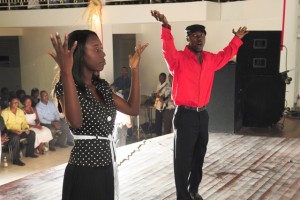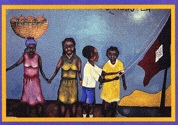“We Want Our Voices To Be Heard”: Democracy in Haiti’s Earthquake Zone
By Laura Flynn
“We are living in the mud. We are wet and we are hungry. Those in charge have left us without hope. If they have a plan we do not know it. We are asking about the future. And we want our voices to be heard, ” Suzette Janvier, a resident of St. Martin (a neighborhood of central Port-au-Prince)
Each Saturday for the past two months a thousand or more Haitian earthquake survivors have met in the auditorium of the Aristide Foundation for Democracy to talk about the future of their country. Since its founding in 1996 the Aristide Foundation, whose auditorium seats up to 3000 people, has provided a place for grassroots activists and ordinary Haitians to come together to debate and discuss national issues. In response to the earthquake the Foundation is sponsoring weekly public forums in which participants tell their stories, talk about the conditions of their lives, and describe their needs; they receive training or information on the current situation and on their rights under the Haitian constitution, and the United Nations principles on Internally Displaced People; and together presenters and participants brainstorm and discuss actions that can be taken to make their voices heard. Each forum has drawn between 900-1500 participants; the majority of those attending are living in spontaneous settlements across the earthquake zone–as are the majority of the citizens of Port-au-Prince. Delegations come from other parts of the country as well, particularly the South and Southeast – Jacmel and Les Cayes –which were also hit hard by the quake.
Participants at AFD forums have offered vivid testimony about conditions of life in Port-au-Prince since the earthquake. Now that the rains have begun, people describe spending the nights “domi pandeye,” (sleeping while balancing upright), standing under their plastic sheeting because there is no room for everyone to be sheltered and lie down, and because water floods the tents. During the rainy season, which has already begun, but will intensify in May, it rains nearly every night. In the morning the sun blazes, the heat under the plastic sheeting—which is all most people have to protect themselves—is stifling. They are now living in “labouye” (the mud) 24 hours a day, in camps almost uniformly lacking in latrines, or other sanitation.









